Generally, gnuplot requires a plot file describing the data (columns) to be plotted and setting the various plot options (title, axis labels, grid, lines, etc.) See How to pass command line argument to gnuplot?. If you wish to plot from within a C program, you will either have to have an existing plot file, or create one on the fly from within your code.
Further, while you may be able to pipe your way to a solution, you are better served forking the plot to a separate process, building a command line with the required parameters and calling gnuplot from execvp or the like. (which provides shell pathname searching, etc.) Using fork you can offload the plotting to the child process, calling execvp from there, leaving your program free to continue without waiting on gnuplot.
The following example uses that approach. All of the helper functions are simply error checking functions or simply utility functions to split pathnames and are not germane to the fork, execvp, gnuplot example. (they just keep main() uncluttered so you can focus on the logic without wading through all the validations. (there are always additional validations you can add).
The code will write the values resulting from the simple function f(x) = x^3 - x2 to the filename given as the first argument provided on the command line (or to gnuplot.dat if no argument is provided). The program will create an appropriate plot file on-the-fly written to gnuplot.plt (by default) or to the filename provided in the format filename.plt (where plt replaces the original extension)
The plot created by the program is the following:

Here is the short example code:
#include <stdio.h>
#include <stdlib.h>
#include <string.h>
#include <sys/types.h>
#include <sys/wait.h>
#include <unistd.h>
enum { MAXL = 128, MAXC = 256};
FILE *xfopen (const char *fn, const char *mode);
int badmode (const char *s);
int xfclose (FILE *fp);
int xfexists (char *fn);
char *fnwoext (char *nm, char *fn);
int main (int argc, char **argv) {
int pid, status;
float f[MAXL] = {0.0};
char *fn = argc > 1 ? argv[1] : "gnuplot.dat";
char fnbase[MAXC] = "", fnplt[MAXC] = "";
size_t i;
FILE *fp = NULL;
for (i = 0; i < MAXL; i++) /* fill array of values */
f[i] = i * i * i - i * i; /* x^3 - x^2. no overflow */
fp = xfopen (fn, "w"); /* open output file */
for (i = 0; i < MAXL; i++) /* write values to file */
fprintf (fp, "%3zu %10.2f\n", i, f[i]);
xfclose (fp); /* close output file */
/* create 'plot' file 'fn.plt' */
strcpy (fnplt, fnwoext (fnbase, fn));
strcat (fnplt, ".plt");
if (!xfexists (fnplt)) {
xfopen (fnplt, "w");
fprintf (fp, "set xlabel 'x'\n"
"set ylabel 'f(x) = x^3 - x^2'\n"
"set title 'Function Plot of f(x) = x^3 - x^2'\n"
"set grid\n"
"set style data lines\n"
"plot \"%s\" using 1:2 lw 3 linecolor rgb \"blue\"\n"
"quit\n", fn);
xfclose (fp);
}
/* fill arguments array for execvp */
char *args[] = { "gnuplot", "-p", fnplt, NULL };
if ((pid = (fork())) < 0) { /* fork plot process */
fprintf (stderr, "fork() error: fork failed.\n");
return 1;
}
else if (pid == 0) { /* plot from child process */
if (execvp (*args, args) == -1) {
fprintf (stderr, "execvp() error: returned error.\n");
_exit (EXIT_FAILURE);
}
}
waitpid (pid, &status, 0); /* wait for plot completion (not req'd) */
return 0;
}
/** fopen with error checking - short version */
FILE *xfopen (const char *fn, const char *mode)
{
if (!fn || !mode || badmode (mode)) {
fprintf (stderr, "xfopen() error: invalid parameter.\n");
exit (EXIT_FAILURE);
}
FILE *fp = fopen (fn, mode);
if (!fp) {
fprintf (stderr, "xfopen() error: file open failed '%s'.\n", fn);
exit (EXIT_FAILURE);
}
return fp;
}
/** validate file mode 's' is "rwa+b" */
int badmode (const char *s)
{
const char *modes = "rwa+b";
for (; *s; s++) {
const char *m = modes;
int valid = 0;
while (*m) if (*s == *m++) { valid = 1; break; }
if (!valid) return *s;
}
return 0;
}
/** file close with error check */
int xfclose (FILE *fp)
{
if (fclose (fp)) {
fprintf (stderr, "xfclose() error: nonzero return on fclose.\n");
return 1;
}
return 0;
}
/** check if file 'fn' already exists */
int xfexists (char *fn)
{
/* if access return is not -1 file exists */
if (access (fn, F_OK ) != -1 )
return 1;
return 0;
}
/** isolate filename, without path or extension */
char *fnwoext (char *nm, char *fn)
{
char *p = NULL, *ep = NULL;
char fnm[MAXC] = "";
if (!fn) return NULL;
strcpy (fnm, fn);
if ((p = strrchr (fnm, '/')))
p++;
else
p = fnm;
if ((ep = strrchr (p, '.'))) {
*ep = 0;
strcpy (nm, p);
*ep = '.';
} else
strcpy (nm, p);
return nm;
}
Look over the code, the approach with fork and execvp and let me know if you have any further questions.
